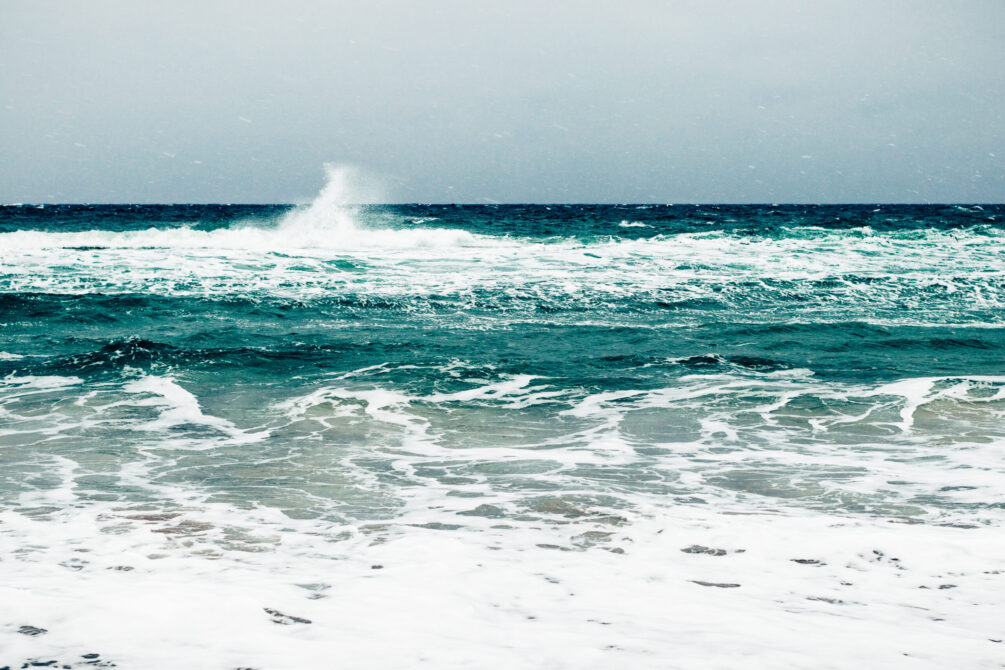Florida is renowned for its amusement parks, beach resorts, and a warm and sunny climate. However, it’s not always bright, clear skies in the Sunshine State, especially when hurricane season comes around.
For six long months beginning in June, the state experiences hurricanes. Most of these tropical cyclones originate from the Atlantic Ocean and proliferate or peak between mid-August and late October. Florida hurricane season lasts until November.
According to AccuWeather, a commercial weather forecaster, three Floridian cities are among the most vulnerable to hurricanes: Miami, Key West, and Tampa. Miami takes the top spot, with a 16% chance of experiencing the impacts of a hurricane in any given year. Historical data also shows that, on average, a passing hurricane will be within 50 miles of the city’s metropolitan area.
“Miami has a large population density, and as a result, the effects of a major hurricane would be catastrophic to the city,” AccuWeather Meteorologist David Samuhel said. “Also, because of its southern location, Miami is probably the largest city on this list to see a Category 4 or 5 hurricane in the future.”
The bottom line is hurricanes are a real threat to Floridians. But, how prepared is Florida for a hurricane? Here are some of the ways the state gets ready for the disaster.
Hurricane Planning and Preparation
Florida has more than 1,000 miles (around 1,600 km) of coastline, 75 miles (about 120 km) of which are within the boundaries of all of the state’s cities. It doesn’t matter where a hurricane landfalls because the impacts can reverberate for hundreds of miles away.
So, when a hurricane hits, it’s important to have a plan in place to manage the situation as best as possible. This planning and preparation initiative rests on the shoulders of the Florida Division of Emergency Management (FDEM), which is led by the governor. The FDEM’s mandate is to plan and prepare for both natural and man-made disasters.
Comprehensive Emergency Management Plan
The Comprehensive Emergency Management Plan (CEMP) refers to a document that covers how the state can adequately prepare for hurricanes and other disasters. It’s a comprehensive document that aims to unite the efforts of local governments, special districts, state agencies, and volunteer organizations into an effective system. It includes operations training and emergency exercises, technical assistance, and emergency communications.
Continuity of Operations Planning
In the event of a catastrophe or emergency, how will the government continue to perform its critical essential functions? This is the main question that the FDEM strives to answer with the Continuity of Operations Planning (COOP). The COOP’s goal is to instill order and clarity resulting from a power vacuum after a disaster strikes.
Catastrophic Planning
The FDEM is also in charge of the state’s catastrophic planning. This is a scenario-based planning that aims to evaluate emergency management capabilities at the state and regional levels. It models both disaster effects and the possible resources needed to manage and/or bounce back from the catastrophe.
Regional Evacuation Studies
The FDEM is mandated by law to manage the update of regional hurricane evacuation studies, i.e., ensure they are done in a consistent manner and the methodology used for modeling storm surge follows that of the National Hurricane Center (NHC). These studies aim to provide realistic data that management officials can use in their hurricane evacuation decision-making and to improve their response to future hurricane threats. In other words, officials use data from these studies to update and revise their hurricane evacuation plans and operational procedures.
Search and Rescue
This is another vital aspect of hurricane preparedness. In Florida, several government agencies contribute to this essential task. These include the Fire Marshal’s Office, the Florida National Guard, and the Department of Law Enforcement.
Florida State Fire Marshal’s Office
The Florida State Fire Marshal’s Office takes charge of management and staffing of firefighting and search and rescue during a disaster or state emergency. It also assists in debris removal, road clearing, and damage assessment.
Florida National Guard
The Florida National Guard (FLNG) plays a key role in hundreds of community service projects statewide. While some train or serve in critical national defense positions, most Florida Guardsmen offer their service in disaster relief operations, including search and rescue as well as debris cleanup, humanitarian aid distribution, storm tracking, and aerial damage survey.
Florida Fish and Wildlife Conservation Commission
The Florida Fish and Wildlife Conservation Commission (FWC) offers general assistance to the hurricane-affected public, which includes cleanup of debris and damage, removal of personal property, sanitation, chainsaw work, and temporary roof tarping. The agency can also deploy high-water vehicles for search and rescue operations, as it did in Hurricane Milton’s case. For fisheries, the FWC Division of Marine Fisheries Management can also provide disaster relief funding.
Special Needs and Pets
Hurricanes affect people and animals in different ways. While everyone experiences hardship, some have it worse than others, including individuals with special needs, seniors, and children. Pets and livestock also require care before, during, and after a hurricane.
Individuals with Special Needs
In Florida, persons with special needs are required to register with their local emergency management agency. This registry is developed by the state’s Department of Health in order to manage the distribution of disaster assistance to this portion of the Floridian population.
Pet Owners
When Hurricane Milton hit Florida, the state’s Department of Business and Professional Regulation (DBPR) coordinated with the Florida Restaurant and Lodging Association to relax or waive their pet policies and fees. This action accommodated pets that have also been impacted by the disaster.
Infrastructure and Housing
Hurricanes can destroy buildings, roads, and other infrastructure. Florida has agencies that focus on these needs post-hurricane.
Florida Housing Finance Corporation
The Florida Housing Finance Corporation (FHFC) addresses Floridians’ need for temporary housing and related support. The agency operates the free search platform FloridaHousingSearch.org to help people find affordable rental property after a hurricane.
Visit Florida
Visit Florida is the state’s official tourism marketing corporation. It partners with Expedia, an American travel technology firm, and online travel agency Priceline to provide Floridians with real-time hotel availability, and lodging resources. Visit Florida also furnishes first responders with over 500 physical maps.
Florida Highway Patrol
The Florida Highway Patrol (FHP) monitors evacuated neighborhoods to suppress or prevent looting and other criminal activity. It also operates rescue and surveys of bridges and hospitals for damage.





